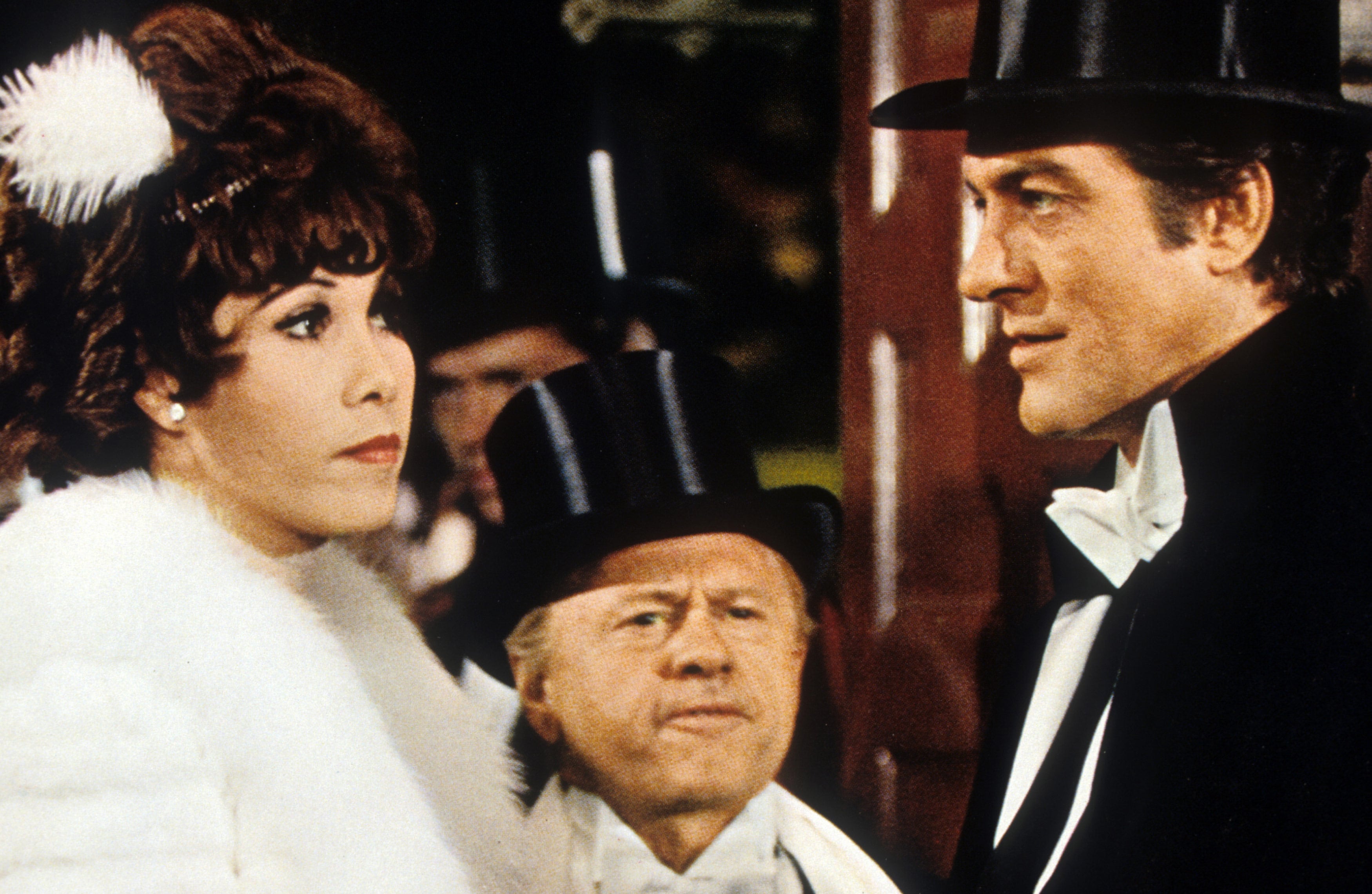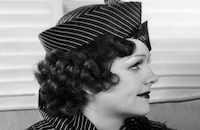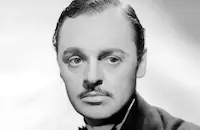The Comic

Brief Synopsis
Cast & Crew
Carl Reiner
Dick Van Dyke
Michele Lee
Mickey Rooney
Cornel Wilde
Nina Wayne
Film Details
Technical Specs

Synopsis
At his funeral the corpse of silent film comedian Billy Bright recalls his early vaudeville career; a stormy marriage to starlet Mary Gibson; divorce; marriage in Mexico to a wanton alcoholic; a prolonged sojourn in Europe; rediscovery by Steve Allen; a late career as the star of television commercials; engagement to an adolescent fortune hunter; his collapse at the altar rail; and a final visit from his son, an effeminate fashion designer.

Director

Carl Reiner
Cast

Dick Van Dyke
Michele Lee

Mickey Rooney

Cornel Wilde
Nina Wayne

Pert Kelton

Steve Allen
Barbara Heller
Ed Peck
Jeannine Riley
Gavin Macleod
Jay Novello
Craig Huebing
Paulene Myers

Fritz Feld

Jerome Cowan
Isabell Sanford

Jeff Donnell

Carl Reiner
Crew
Butler-glouner Inc.
Jack Elliott
Adrienne Fazan
Les Fresholtz
Donald Glouner
Morris Hoffman
Virginia Jones
W. Wallace Kelley
Ben Lane
Rusty Meek
Arthur Piantadosi
Carl Reiner
Carl Reiner
Charles J. Rice
Aaron Ruben
Aaron Ruben
Russell Saunders
Walter Simonds
Guy Verhille

Videos
Movie Clip



Film Details
Technical Specs

Articles
The Comic
The success and instant classic status of Disney's Mary Poppins (1964) notwithstanding, Dick Van Dyke never felt entirely comfortable in or well-served by his forays into feature film work. His star vehicles in the post-The Dick Van Dyke show years - Disney's Lt. Robin Crusoe, USN (1966), Delbert Mann's Fitzwilly (1967), Ken Hughes' Chitty Chitty Bang Bang (1968) and Garson Kanin's Some Kind of a Nut (1969) - left Van Dyke feeling unsatisfied and unfulfilled. An attempt to split the difference between offering Van Dyke's fans what they wanted (the actor in physically demanding comic roles) while plumbing Van Dyke's taste for edgier material was Columbia's The Comic (1969), directed by Carl Reiner and written by Aaron Ruben. Filmed under the working title Billy Bright, the production centered on the career and troubled personal life of the eponymous silent film comedian, patterned in part after Stan Laurel, Buster Keaton, Harry Langdon and Charlie Chaplin. Despite Van Dyke's affection for the funsters of a bygone era, The Comic is anything but a hagiography, reveling as it does in the protagonist's behind-the-scenes misdeeds (including an extramarital affair that seems patterned after Buster Keaton's doomed tryst with actress Kathleen Key, who infamously trashed the star's MGM dressing room after a lover's quarrel and was blacklisted by the studio). Structured as a memory piece, The Comic is narrated by a postmortem Billy Bright as he lies in repose in a mortuary casket, a likely nod to Billy Wilder's proposed opening to Sunset Boulevard (1950), which was nixed by the studio.
Silent film fans remain divided on the merits of The Comic, with its boosters praising Van Dyke's performance - as well as that of an endearing character turn by Mickey Rooney, as Billy Bright's partner Cockeye- and Carl Reiner's stab at an unflinching Hollywood expose; the film's detractors bemoaned the film's cynical tone and what they perceived as a lackluster approximation of silent filmmaking. Critics were divided in their own reactions. Writing for The New York Times, Roger Greenspan likened The Comic to "an extension of The Dick Van Dyke Show gone sour" but allowed that Van Dyke's silent film recreations were "genuinely funny and sophisticated." Pauline Kael expressed contempt for Carl Reiner, whose direction she found "prodigiously facile," but reserved kudos for the cast: "Dick Van Dyke has the true manic feeling for the silent-comedy routines, and Mickey Rooney... creates a character out of almost nothing and lives it on the screen so convincingly that you fully expect to see him again after the movie is over." Columbia Pictures seemed not to know what to make of The Comic, pairing the feature after its November 1969 New York premiere with Henry Levin's violent The Desperados (1969), whose entire dramatis personae lies dead on the ground by the final frames.
Producers: Carl Reiner, Aaron Ruben
Director: Carl Reiner
Screenplay: Carl Reiner, Aaron Ruben
Cinematography: W. Wallace Kelley
Music: Jack Elliott
Film Editing: Adrienne Fazan
Cast: Dick Van Dyke (Billy Bright), Michele Lee (Mary Gibson), Mickey Rooney (Cockeye), Cornel Wilde (Frank Powers), Nina Wayne (Sybil), Pert Kelton (Mama), Steve Allen (himself), Barbara Heller (Ginger), Ed Peck (Edwin G. Englehardt), Jeannine Riley (Lorraine), Gavin MacLeod (1st Director), Jay Novello (Miguel), Craig Huebing (doctor), Paulene Myers (Phoebe), Fritz Feld (Armand), Jerome Cowan (Lawrence), Isabel Sanford (woman), Jeff Donnell (nurse), Carl Reiner (Al Schilling).
C-96m.
by Richard Harland Smith
Sources:
The Official Dick Van Dyke Book by Vince Waldron (Applause Books, 1994)
Interview with Dick Van Dyke by Lee Goldberg, Archive of American Television, January 8, 1998
Stan and Ollie: The Roots of Comedy (The Double Life of Laurel and Hardy by Simon Louvish (St. Martin's Griffin, 2005)
Buster Keaton: Cut to the Chase by Marion Meade (Harper Collins, 1995)

The Comic
Quotes
Trivia
Notes
The working title of this film is Billy Bright.

Miscellaneous Notes
Released in United States Fall November 1969
Released in United States Fall November 1969













